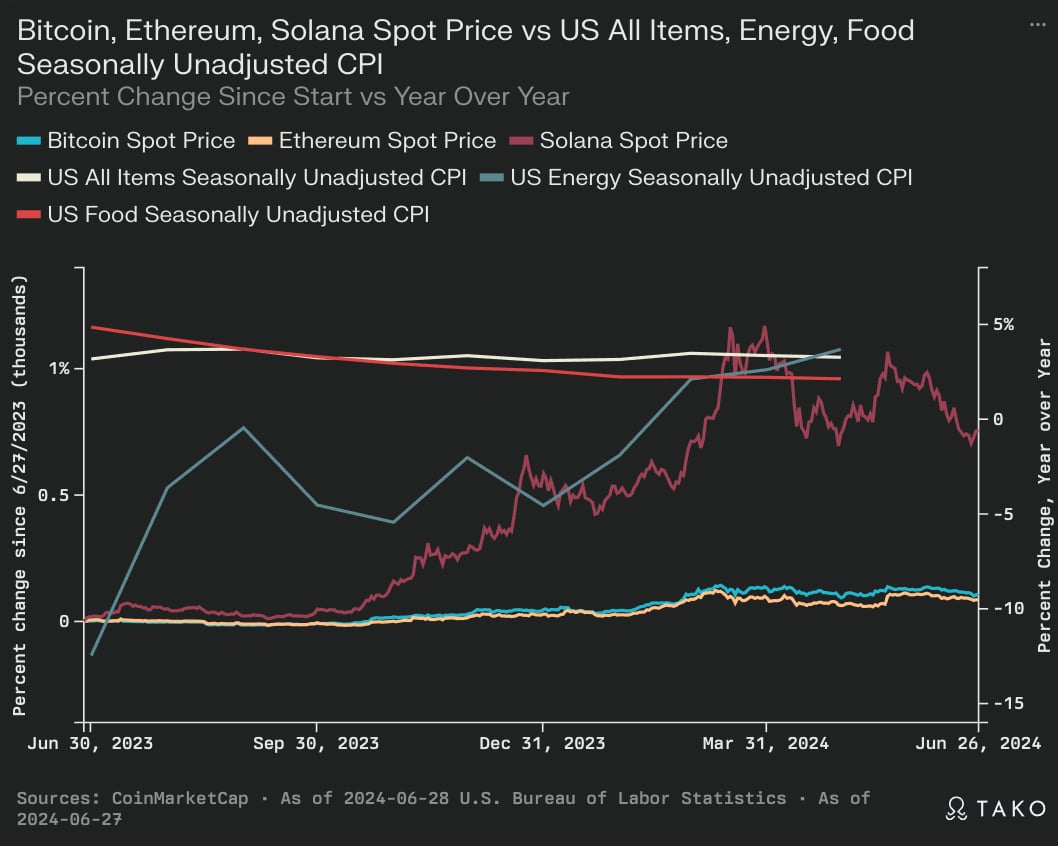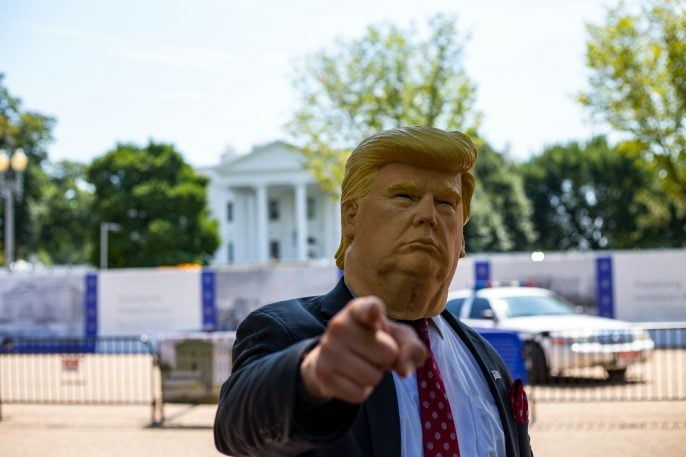Photo by Darren Halstead on Unsplash
Key Takeaways
- Sixteen Nobel Prize-winning economists have expressed concern about President Trump's possible reelection and the economic risks it poses.
- Economists point to rising and destabilizing inflation as a major threat to President Trump's economic policies.
Share this article
![]()
![]()
Sixteen Nobel Prize-winning economists have warned that the reelection of President Donald Trump could have a detrimental effect on the U.S. economy and rekindle inflation, which would have significant implications for the cryptocurrency market as a whole.
The economists' letter, published Tuesday, argues that Trump's policies will destabilize the economy and lead to higher consumer prices. They argue that his “fiscally irresponsible budget” could bring back high inflation, and contrast it with President Biden's praise of his economic record, which includes investments in infrastructure and clean energy.
The warning comes as the now-convicted Trump shifted to a pro-crypto stance during his election campaign, vowing to end the U.S. government's hostility toward cryptocurrencies and beginning to accept donations in cryptocurrency, a shift that represents a major shift from his previously critical views on cryptocurrencies and digital assets in general.
“We believe that a Trump presidency would have a negative impact on America's economic standing in the world and destabilize the domestic US economy,” the economists said.
Crypto industry leaders like Cathie Wood have supported Trump's presidential bid, believing that a victory would be “best for our economy,” and founders like the Winklevoss twins have also backed Trump, despite their campaign donations being refunded.
Cryptocurrency and Inflation Data
The possibility of a resurgence in inflation under President Trump could have various effects on the cryptocurrency market. Some see Bitcoin as an inflation hedge, and data shows a negative correlation between Bitcoin prices and rising consumer prices. However, cryptocurrencies often benefit when the money supply (M2) increases under expansionary fiscal policies.
The recent cryptocurrency market surge has already raised concerns about its potential impact on inflation. A “wealth effect” from unrealized cryptocurrency gains could boost consumer spending and potentially inject demand-driven inflation into the economy. This could force the Federal Reserve to rethink its planned interest rate cuts.
The chart below, taken from Perplexity based on data from CoinMarketCap, shows the complex relationship between economic factors and cryptocurrency performance.


The chart shows that cryptocurrency prices, especially Bitcoin, Ethereum and Solana, have exhibited high volatility over the past year compared to traditional CPI metrics, which could be exacerbated by the economic instability that Nobel economists have warned about if President Trump is re-elected.
The chart shows that while cryptocurrencies have seen strong price increases, they are also susceptible to sharp corrections. These corrections often coincide with periods of heightened economic uncertainty, which could be exacerbated under policies that the Nobel Prize economist described as “fiscally irresponsible.” As highlighted in the warning, the unpredictable nature of Trump's policymaking style could lead to increased market volatility, alienating institutional investors and slowing the mainstream adoption of cryptocurrencies.
The data also shows that energy prices have a notable impact on the overall CPI. President Trump's energy policies, which may differ significantly from the current approach, could lead to volatility in energy costs. This could impact mining profitability and network security on proof-of-work networks like Bitcoin, destabilizing the broader cryptocurrency ecosystem.
Economists' concerns about international relations under President Trump could also negatively impact the global nature of the cryptocurrency market: strained diplomatic relations could hinder cross-border trade and cooperative efforts to develop global cryptocurrency regulation, fragmenting the market and reducing liquidity.
For the cryptocurrency industry, the economists' warning highlights the complex interplay between macroeconomic policy, inflation, and digital asset markets. While President Trump's pro-crypto stance may seem favorable, the broader economic instability that the economists predict could create a challenging environment for cryptocurrencies.
The contrasting economic visions presented by Trump and Biden and their potential impact on inflation and monetary policy will likely be key factors influencing crypto market trends before and after the 2024 US presidential election.
Share this article
![]()
![]()

